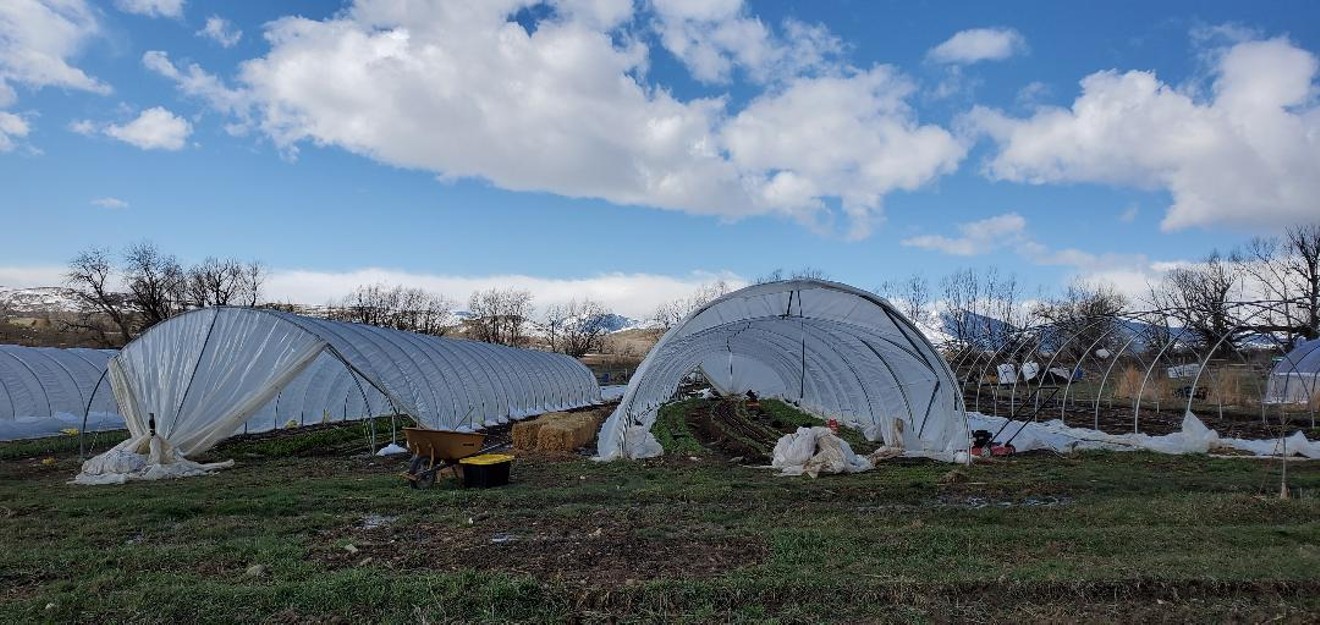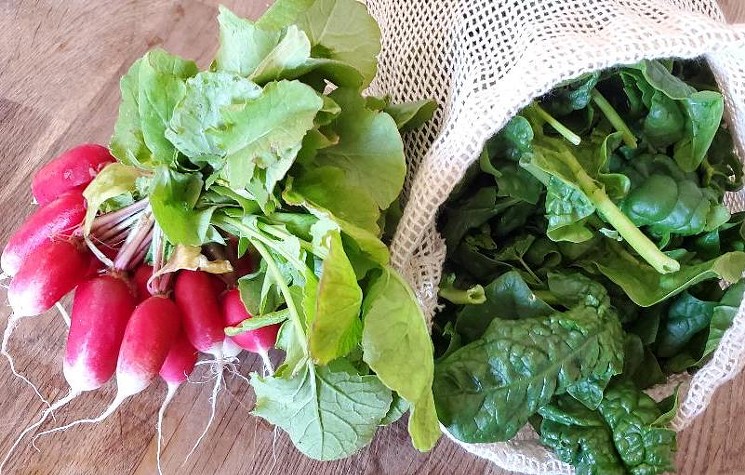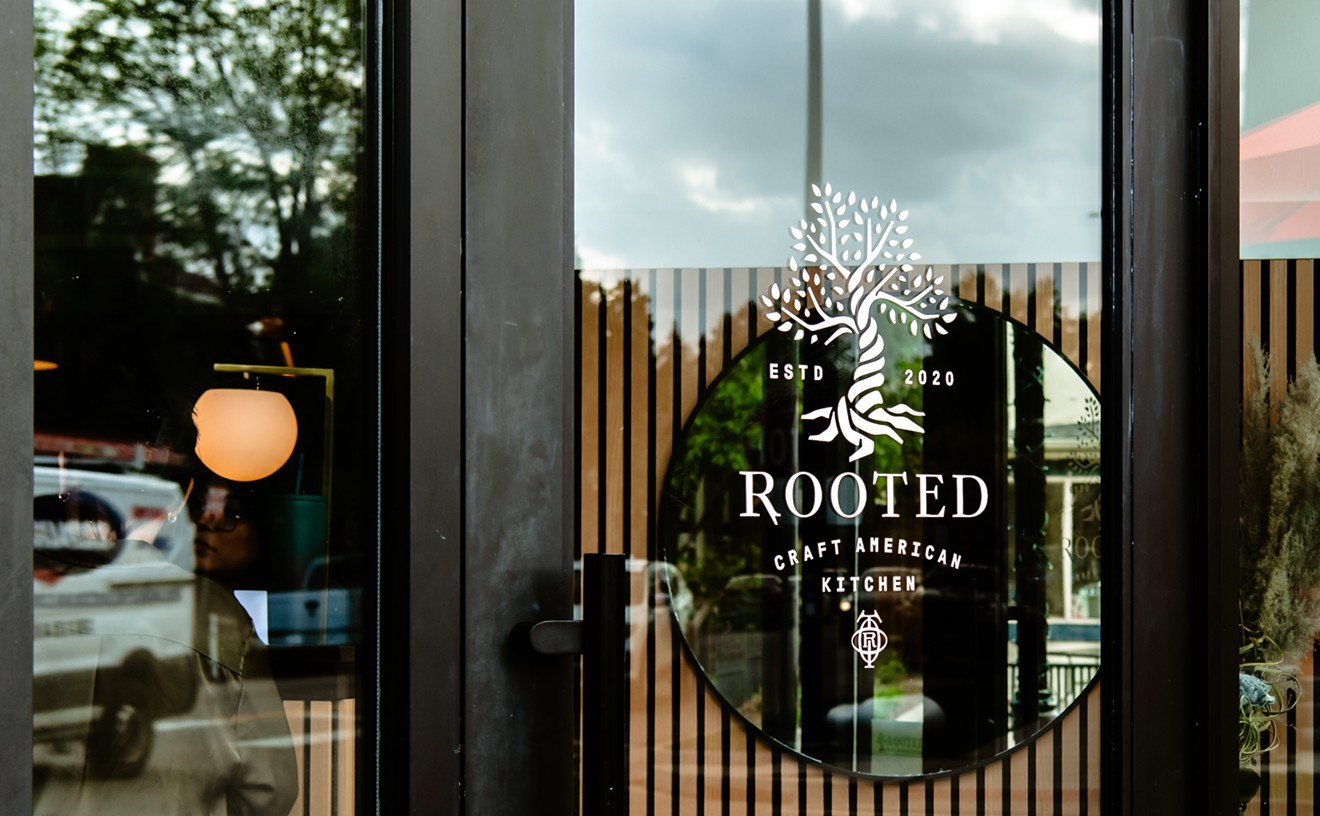With restaurants closed to dine-in customers and farmers' markets facing significant spring opening delays to help maintain social distancing, many farms have found themselves with excess produce, meat and eggs, but with no place for much of it to go through their regular supply chains. But in true Colorado fashion, the people behind the farms and markets are banding together to grow, distribute and sell farm-fresh products and otherwise support these important businesses.
"The crisis will impact seasonal farmers' markets dramatically if it extends into the summer season," says Margaret Barkey of the Four Seasons Farmers and Artisans Market at 7043 West 38th Avenue in Wheat Ridge. "Their loss will be if they are not able to sell their products in the summer markets. The need for food will still be there, but an alternative distribution system will be challenging."
At Barkey's year-round market, most of the vendors are small farms and ranchers. She says that because of the coronavirus, many new protocols have been put in place: Vendors are only allowed come in to stock products, pick-up and delivery options have been created, online shopping has been set up, operating hours have been reduced, and rigorous sanitation routines for both staff and customers have been implemented. The market is also trying to buy as much of the overstock products as it can and as long as it's deemed safe.
Four Seasons isn't the only market trying to make changes to protect its farmers and customers. The Boulder County Farmers' Market has also been in upheaval the last couple weeks.

Goods from Cure Organic Farm at last year's Boulder County Farmers' Market in Boulder.
Linnea Covington
"We are planning to have extra procedures in place at the markets to promote excellent hygiene and social distancing as a means to keep our community safe," says Brian Coppom, executive director of the BCFM.
One way the market is keeping customers and farmers secure is by pushing back the Boulder and Longmont markets' opening days to May 2 (as a comparison, last year opening day was April 6). Whether or not it will be deemed wise to open at that time depends on how things progress with the containment of the epidemic, something only time will tell. Right now the BCFM hosts around 150 vendors, mostly farmers and ranchers. It's the largest market in the metro area, and a lack of sales can cause problems for everyone involved.

Last year the Boulder County Farmers' Market in Boulder opened in April.
Boulder County Farmers Market
"We know that this is an evolving climate, and expect changes to come by the hour — and we're trying to be prepared for many different outcomes," says Coppom. "Once markets open, we are likely to have to make changes to layout and features in order to address social distancing and provide a safe environment."
The BCFM and other markets are also considering teaming up with delivery software platform Get Swift, which has offices in Loveland and New York City. A Get Swift plan has yet to be solidified, but Coppom says delivery and pick-up options for customers are both being explored to counteract business lost from not having a physical marketplace.
"We consider the market a community resource that not only supports our farmers and local economy, but provides the nutritious food we need to stay healthy and able," he says. "We are really looking at all the different scenarios at this point."

In Boulder, Black Cat Bistro and Bramble & Hare have turned into a takeout shop called Provisions, complete with veggies, grains, wine, meals to go and more.
Linnea Covington
Other farm-based businesses are looking at new ways to keep business flowing. Chef, farmer and restaurant owner Eric Skokan has turned his Boulder eatery Bramble & Hare, at 1970 13th Street in Boulder, into Provisions, a call-ahead takeout shop with curbside service. This includes greens like arugula, kale and tatsoi, as well as cornmeal, fresh bread, carrots, potatoes, local coffee, eggs and flour made from Skokan's own wheat. Prepared foods such as lamb curry, marinara sauce, housemade pasta and breakfast burritos are also on the menu, plus changing dinner options from Skokan's two restaurants that are separate from the Provisions offerings. And Skokan also just launched online shopping for all of the above on the Black Cat website (or you can call 303-444-5500 or email [email protected] to order).
"We are trying to put our best foot forward and sell things in the safest way possible," says Skokan, who is also utilizing as much staff as he can this way. "One guy is making a thousand pounds of pasta, and our delivery drivers are waitstaff and bartenders, who are especially hard hit. We are grateful to get people back to work, and hopefully everyone will make it through."
Urban farms and organizations such as the GrowHaus are putting together boxes of goods for delivery and pick-up. While the Growhaus isn't currently growing its own produce, it's working with other local farmers to get food on the tables for those in urgent need of good food and selling weekly boxes of eggs, bread, veggies and fruit that you can get delivered to your home. As a nonprofit, the organization relies on donations to fund much of its mission.
Not all farms use the farmers' markets or operate a stand. Esoterra Culinary Garden is a 1.5-acre plot that specializes in unusual herbs and vegetables for chefs, but, says owner Mark DeRespinis, demand this year is much different than in normal years. Instead of delicate greens and micro veggies, he says the demand is more for piles of spring spinach and radishes, which can be used for hearty takeout foods. He hasn't quite figured out what will come of the season, but he plans on growing as usual and selling it where he can.
Marcus McCauley, owner of McCauley Family Farm at 9421 North 63rd Street in Longmont, says he actually finds the farmers' market delay a bit of a relief, since he wasn't sure how he was going to manage his stands this year. Instead, he plans on pushing his farm's meat and egg CSA and selling to individual customers.
Another way to support farms and get tasty, healthy food in the process is to visit the farms' stands in person. Aspen Moon Farm, at 7927 Hygiene Road in Longmont, has CSA shares to buy as well as a daily farm stand. There the owners are currently working with the Boulder County Health Department to make sure it's as safe as possible for customers. Boulder's Cure Organic Farm, at 7416 Valmont Road in Boulder, also has a produce stand and weekly CSA boxes you can order and pick up. Cure, too, is dedicated to keeping the virus at bay.
With so many no-contact ways of shopping for local produce and meats, it's not too difficult to support Colorado's small farms. It might take a little more driving or planning, but let's be honest: It's nice to get out of the house and into some fresh farm air.















